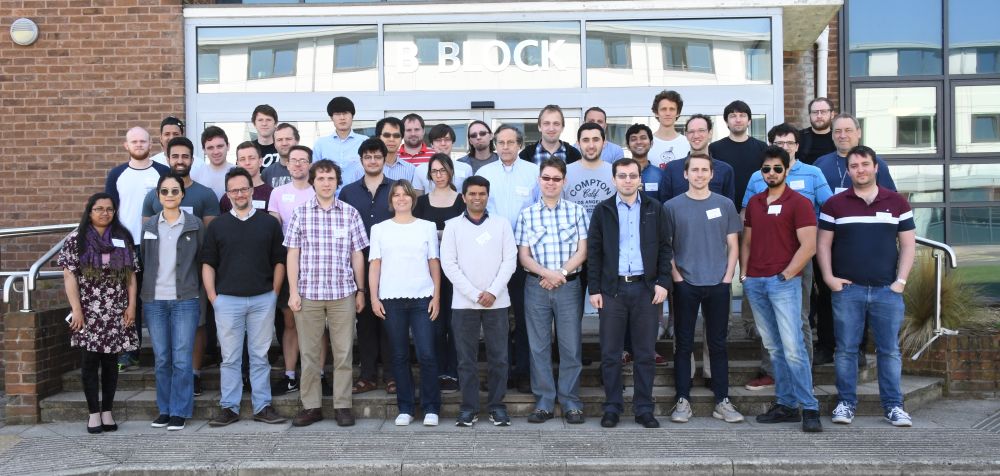Daresbury Laboratory, United Kingdom, Monday 21 – Friday 25 May 2018
Many body response functions in the QUESTAAL code, hands-on course given that was held at Daresbury Laboratory, May 21-25, 2018.
Hands-on Course Tutorials
Report

We are pleased to announce the hands-on school “Many-body response functions in the QUESTAAL code”. It will take place 21-25 May 2018, at Daresbury Laboratory, U.K. The course starts on 21st at 9 am and finishes on 25th at 4:30 pm. A fee of £50 applies. All local expenses (food, accommodation, & conference dinner) will be covered by the organisers.
For further information about the school, or to download the Questaal package, send queries to Laurie van Schilfgaarde at laurie.van_schilfgaarde@kcl.ac.uk
This is an opportunity for young researchers to learn about advanced electronic structure and how to use the Questaal Suite. This workshop will be of interest to lecturers, post-docs and 3rd year PhD students. Good knowledge of solid state physics, including some background in many-body physics, experience in running DFT codes.
To register, please visit: http://www.cvent.com/d/3tqf09
Questaal (www.questaal.org) is an all-electron package for solids that solves for the electronic structure at different levels of theory, including Density Functional Theory (DFT), the Quasiparticle Self-Consistent GW approximation (QSGW), and Dynamical Mean Field Theory (DMFT). The basis set consists of generalized Linear Muffin Tin Orbitals, or a combination of these with augmented plane waves. The course will focus on QSGW and recent extensions in two contexts: extending many-body perturbation theory (MBPT) to include ladder diagrams, and by combining QSGW with Dynamical Mean Field Theory (DMFT). Other extensions include the calculation of spin and charge susceptibilities, either in MBPT or in a DMFT framework.
The hands-on part will consist of tutorials explaining how to use the different approaches in the Questaal package in various contexts. The afternoons will be dedicated to users trying out the codes in guided exercises, or topics of their own choosing.
Invited speakers/lecturers: Silke Bierman (École Polytechnique Paris), Brian Cunningham and Myrta Gruening (Queen’s University Belfast), Jerome Jackson (STFC Daresbury), Toby Perring (STFC ISIS), Swagata Acharya, Dimitar Pashov, and Mark van Schilfgaarde (King’s College London).
